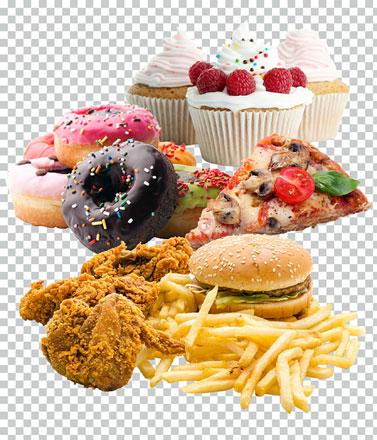You are here
Teenage boy goes blind by living mostly on junk food
By New York Daily News (TNS) - Oct 12,2019 - Last updated at Oct 12,2019

Photo courtesy of yandex.com
A teenage boy who subsisted primarily on junk food went blind from his poor diet, according to a new study.
The 17-year-old, who lives in the United Kingdom, first went to the doctor at age 14 complaining of tiredness, the Annals of Internal Medicine wrote in the study abstract. By the time his doctors discovered that nutrition was the probable cause, his vision was irrevocably damaged.
Though he was a self-described fussy eater, the teen was healthy in all other respects and wasn’t on any medication, said researchers at the University of Bristol in England. Tests showed he had a form of anemia and low vitamin B12 levels. After B12 injections and dietary advice, the doctor sent him home.
However, it did not end there. A year later the boy, who was then 15, had hearing loss and vision symptoms, but doctors couldn’t find a cause, the researchers said in a statement.
Two years after that, he was 17 and legally blind. That’s when they discovered a severe vitamin B12 deficiency, low copper and selenium levels, high zinc levels and “markedly reduced” vitamin D and bone mineral density, the researchers said.
He revealed that his diet consisted mainly of Pringles, French fries, white bread and occasionally some processed meats like ham and sausage.
“Since starting secondary school, the patient had consumed a limited diet of chips, crisps, white bread, and some processed pork,” the researchers said. “By the time the patient’s condition was diagnosed, the patient had permanently impaired vision.”
Researchers determined that the youth had given himself a case of nutritional optic neuropathy with his near-exclusive consumption of junk food.
They said such cases could rise given the world’s reliance on processed foods, but they also pointed to veganism as a possible eroder of vitamin B12 levels, which could also lead to malnutrition.
Some 2 billion people around the world are subject to deficiencies in micronutrients, study co-author Denize Atan, an ophthalmologist at Bristol Medical School and Bristol Eye Hospital, told Newsweek, but health professionals tend to downplay or be unaware of the link between nutrition, diet and visual health.
“Nutritional optic neuropathy [aka deficiency optic neuropathy] is a dysfunction of the optic nerve resulting from improper dietary content of certain nutrients essential for normal functioning of the nerve fibres,” says the US National Institutes of Health. “Most commonly, it results from folic acid and vitamin B complex deficiency associated with malnutrition or poor dietary habits, incorrectly applied vegetarian diet, or chronic alcohol abuse.”
If treated early, nutritional optic neuropathy can be reversed. The research team recommended that dietary history should also be obtained during physical examinations, in the same way that it’s routine to ask about smoking and alcohol intake.
“This may avoid a diagnosis of nutritional optic neuropathy being missed or delayed, as some associated visual loss can fully recover if the nutritional deficiencies are treated early enough,” the researchers said.
The study drew some criticism from scientists who said it did not definitively prove a cause-and-effect relationship.
“Vitamin B12 deficiency can cause optic neuropathy but it is very unusual to find dietary deficiency when animal products are consumed e.g. ham and sausages which are significant sources of the vitamin B12,” he told the Science Media Centre in London, according to CNN.
Even the researchers noted it was an extreme example. But they said that at the very least, it shows that nutritional deficits can take many guises.
“This case highlights the impact of diet on visual and physical health, and the fact that calorie intake and BMI are not reliable indicators of nutritional status,” Atan said in the researchers’ statement.
“Nutrition does not just depend on how much you eat but what you eat, and this case illustrates that fact,” Atan told Newsweek. “Here was a boy who consumed enough calories — he had normal height and weight and no visible signs of malnutrition — but he restricted his food to crisps and chips [fries] and a bit of processed pork. In other words, energy-dense foods of little nutritional value. The case illustrates the fact that calorie intake and BMI are not reliable indicators of nutritional status.”
By Theresa Braine
Related Articles
A sign of a healthy digestive system is saliva production; once you feel your mouth is dry which indicates you probably lack digestive enzymes, your body will take longer to absorb vitamins and minerals
Vitamin supplements marketed for infants and children often contain more than the recommended amount of individual vitamins, according to a new study.
Women’s low vitamin D levels during pregnancy are linked to a higher risk of cavities in the teeth of their toddlers, according to a new study done in Canada.


















